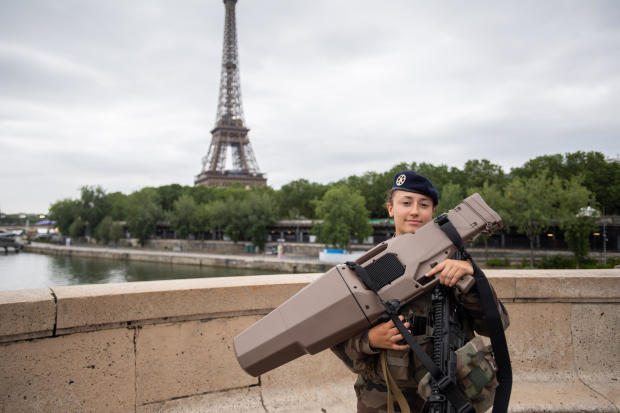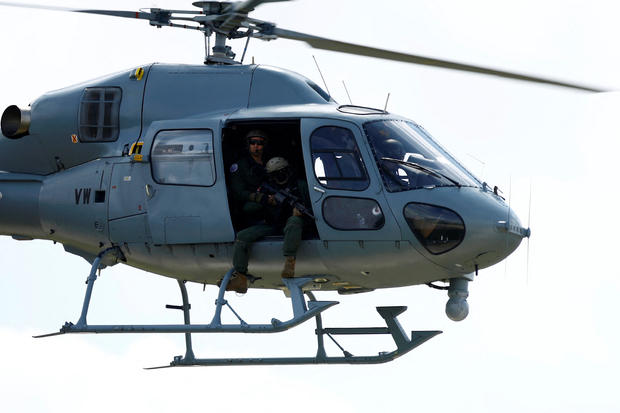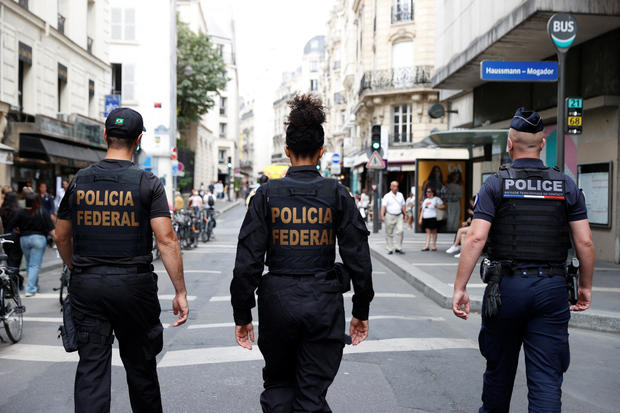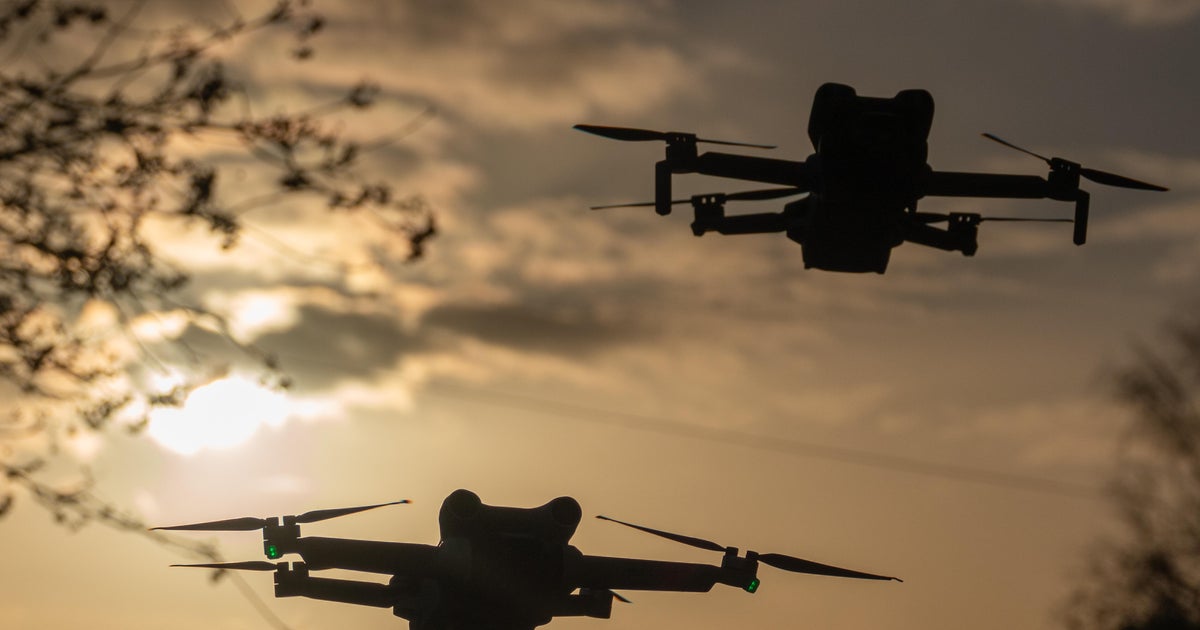2024 Paris Olympics security challenges include 53 intercepted drones and 5,000 people barred from the Games
Paris — More than 50 drones have been intercepted by French law enforcement agencies, and more than 40 environmental activists detained by police since the 2024 Paris Olympics began. French officials say, however, that's as serious as the security threats to the Summer Games have been so far.
France mobilized police and military forces from across the country and even drafted in hundreds of officers from abroad to help secure the city and its scattered Olympic venues. The biggest security deployment was for the opening ceremony on July 26, when 45,000 local and national police, backed up by 18,000 military personnel, converged on Paris and the surrounding region.
The 53 drones intercepted near Olympic sites were not all flown with malicious intent, stressed Interior Minister Gérald Darmanin in an interview with the Ouest France newspaper. Many were simply people breaking regulations on where or how high they could fly, or flying drones in rough weather, potentially putting people below at risk.
Some were, he suggested, just hoping to catch a better view, including during the opening ceremony. Drones can only be flown over Paris with a permit, and amateur fliers were told well ahead of the Games that there would be no permits for anyone other than those taking part in the Games, law enforcement agencies or accredited media.
The French army ran exercises earlier this year to ensure personnel deployed to Olympic sites would be familiar with its anti-drone arsenal. The army said it would be ready to take down drones designed to block radars, jam radio frequencies, spy on sensitive sites or just trying to get a bird's eye view of an event.
The arsenal includes 15 heavy anti-drone units, which can neutralize a drone from a couple miles away. Each features a radar, cameras and a jamming antenna. French officers also have anti-drone rifles, designed to scramble the radio signals of a suspect drone or take it down by laser if it's considered a threat.
On Saturday, the day after the opening ceremony, police detained 44 people in central Paris on suspicion of planning acts of sabotage. Darmanin said they were all members of Extinction Rebellion, an environmental group known for radical, often large-scale protests, including occupying contested or sensitive sites.
He said they were identified thanks to police intelligence work, which suggested they were planning disruptive action along with 150 other individuals. According to local media reports, the suspects had a truck loaded with bales of hay and other materials to build a makeshift camp and buckets of water when they were detained.
Extinction Rebellion announced on Saturday, after the arrests, that it was cancelling a planned protest against the "social and environmental" damage caused by the Paris Games, citing what it called "police repression."
French authorities didn't wait until opening day to start keeping potential trouble-makers away from the Games.
Around 5,000 people were refused access to the opening ceremony after security checks raised red flags, ranging from previous delinquency convictions to suspected religious radicalization. Of those denied access, 1,000 people were barred based on suspicion they were planning cyberattacks or some level of espionage for foreign countries.
As well as the high number of French law enforcement agents on the streets of Paris and other towns and cities hosting Olympic events, almost 1,800 police officers from 44 foreign countries were brought in as backup.
Some were invited because of their specialist skills, including a K-9 team from the NYPD. Others were invited to ensure protection for foreign nationals, or simply to ensure the possibility of a familiar uniform or language for any fans who might need assistance.






